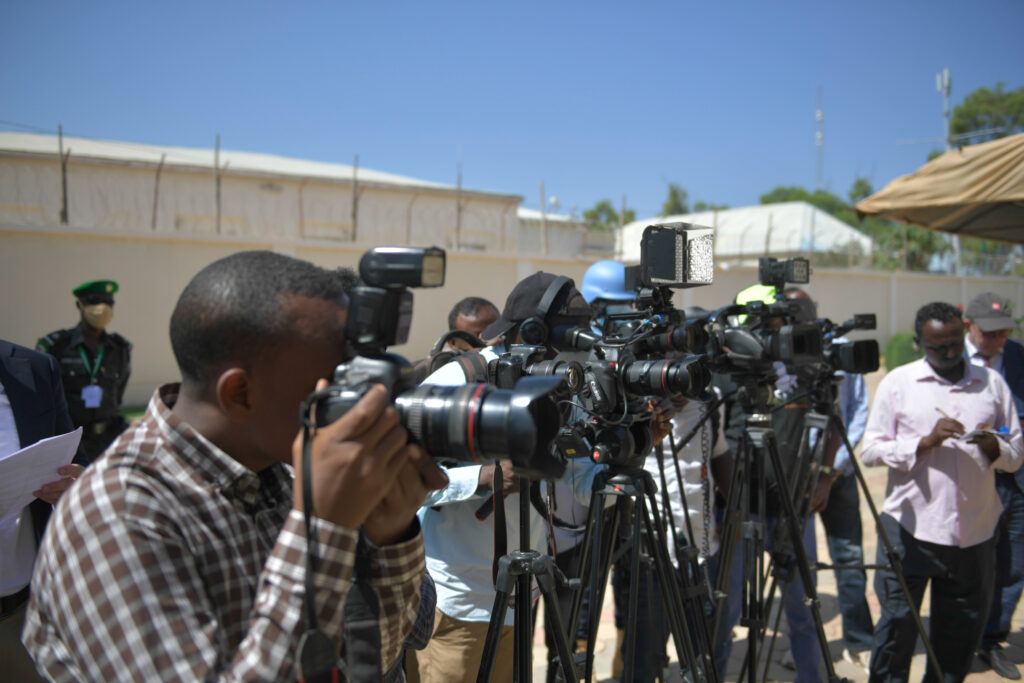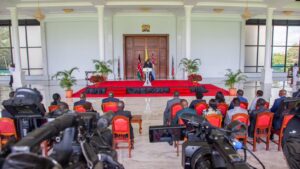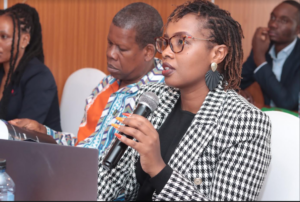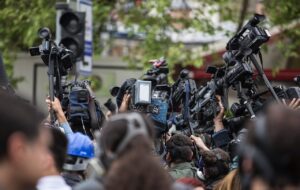The Sad Story of the Broke Kenyan Journalists

It has been a tough year for journalists in Kenya.
From media houses reorganisations that have cost colleagues hundreds of jobs, revenue for publishers and broadcasters has never been this difficult to generate.
COVID-19 did not make things better as salary cuts came by across many newsrooms, while some media houses did this professionally and logically in consent with their staff to navigate the rough patch that Coronavirus exposed us to, other media houses’ bosses and human resource teams oppressed generally underpaid comrades mercilessly.
Those who opposed salary cuts or asked to be compensated when things return to norm were sacked, you know that “mutual consent” lie.
Journalists’ positions have been declared redundant for pushing for better terms and shortly after their ouster their positions advertised and new personnel appointed.
Journalists’ pay is generally low, forget about the glamour on TV and the big names illusion. Weighed against the work hours, risks and work-life balance, it’s surely a pity.
Those who’ve build personal brands over time are over this hurdle but what percentage is that of all Kenyan journalists especially away from TV bulletins?
Many newspapers and radios depend on correspondents, a good number who have neither a salary not retainer and only get paid per story published, mind you, a journalist can work on 50 stories per month but only 10 of those could be published.
So it is not solely upon a journalist to determine an estimate of their pay. Their editors determine what goes on print or is broadcast and in which size and length respectively.
When was the last time newspapers revised how they pay per story from as low as KSh 200 for news briefs done by correspondents?
This means one can earn as low as KSh 2000 per month from 10 published briefs and maybe another KSh 2500 for five published photos.
In fact the amount that used to be paid for features reduced from between KSh 5,000 and KSh 7500 over eight years ago to as low as between KSh 1200 to KSh 2500 for print.
It’s a near miracle to have five features published in a newspaper in a month. Several editors have to choose between many feature articles by tens or hundreds of correspondents.
Radio stories reduced from between KSh 250 and KSh 500 to a paltry KSh 150, which was not bad anyway if a reporter would file up to 10 stories per day, but things worsened when filed stories were capped at three per day by some media houses.
With such a pay structure, journalists who write passionately about the push for better doctors’, nurses’, teachers’ and other professions cannot access loans to invest and grow their income base.
Correspondents hardly have their health cover, as basic as NHIF paid by their employers.
Many years back during a meeting with Human Resource team, a colleague then asked why the company had failed to honour its promise to pay at least NHIF cover for correspondents five years later and the then newly employed HR officer told them that they were not employees but just individuals contracted to help with some activities.
It’s a classic hand to mouth profession just sugarcoated with studio lights and colourful language on papers but those plying the trade are truly suffering.
When you get sick and have to be off it meant no pay because you are not writing and nothing gets published. How do you go for leave if it means you don’t earn for not being able to publish articles?
And yes, resilient female journalists would survive through maternity struggling to file articles at least to pay rent and cater for basic needs.
If you take leave early, let’s say the expected three months, it means no filing of stories and no pay, unless you have a retainer that is majorly between KSh 5,000 and KSh 15,000 outside Nairobi and averagely KSh 25k in the city.
Even interesting, the so-called some activities demand that one reports to the regional news bureau daily like someone in full time employment, it is only in payment where theine is drawn.
Correspondents pay can be delayed in a demeaning way that sometimes colleagues would get their August pay towards the end of September and in most cases it was what we accepted to call peanuts.
It is such situations that would turn some journalists to extortionist and brown envelope scribes. I don’t justify this, but how does a family man working under the above conditions provide for their family?
Editors, some working in weekend or specific pullouts would and I think still earn at least a five fold of what a high earning correspondent earns.
Try find out what graphic designers, cameramen and other technical professionals earn versus news anchors, the latter, some who did not train as journalists (not an issue though) earn and you will be startled. Upto tenfold disparity.
Reporters are no longer on permanent and pensionable employment terms but on contracts.
Picture cutting their pay over COVID-19 effects on economy and specifically reduced advertisement budgets by companies and not returning it to initial rates two years later.
Couple these tribulations with diminishing income for media houses and you will understand that the messenger is sick. Journalists are traumatised and depressed and this, sometimes is reflected in the work they produce and disseminate.
Nation Media Group, The Standard, Capital FM, BBC and CNN have laid off journalists this year or are planning to do so if not in the process.
Many journalists are becoming jobless.
A few ones with projected brighter journalism careers have been absorbed to work as communication and media relations people for county governments, government departments, parastatals and Non-Governmental Organisations.
Is this weakening the profession and the quality of media’s watchdog role? Subject for debate but a Yes is inevitable here.
Comrades in some dailies haven’t been paid for the past seven months and have no hope. There’s no Christmas for them.
Politicians have and will continue to take advantage of this poor remuneration and work conditions for journalists to bribe them and weaken the oversight role.
Journalists have been subjects of politicians and their followers’ attacks, trolls and are in the receiving end of threats from rogue politicians and security agents.
Journalists have found themselves facing criminal defamation cases that are illogical especially when reporting on corruption cases.
Demand letters are being served left, right and centre like chapatis this festive season and some rogue elements in the Office if the Director of Public Prosecutions have not been helping the situation. Sometimes taking sides with the corruption that is fighting back.
Female journalists have been trolled and beyond their work, their body shapes, their children, marriages and looks have been their enemies’ fort of battering them.
Interns are confused as what they have found in the field and what they learnt in class is worlds apart.
You would ask where are unions and that is okay but you will be surprised that many reputable media houses that claim to champion for others professions’ labour rights have barred their employees from joining unions.
Journalists’ families are falling apart, there have been tragic suicidal ends this ending year in Nakuru and Nairobi. Journalists have sunk into alcoholism as a coping mechanism to traumatising work environment and poor pay.
There’s hope though.
Digital platforms that are fast learning how to alternatively generate revenue after being labelled gutter press and blogs by the legacy media fraternity are doing well in terms of remunerating their staff.
The lockdown season that saw YouTube content creators rise also saw digital news platforms improve and embrace new working arrangements that improved work-life balance for their staff.
Though work demands would be more and tiring, at least a consistent monthly package for journalists in digital space keeps them going and it could only get better.
In case you were wondering why someone would leave the big name media house to work for the sprouting and fast growing in terms of credibility and conformation to new technology digital spaces, better terms is one of the key reasons.
Why work for the oldest media house in the country or one with many viewers and another with many products and end up at your house broke yet working for a startup makes you a better digital journalist with a better package and opportunity to moonlight.
The recent move by Dennis Okari and Mark Masai to the digital space after being sacked from Nation should explain the thoughtline above.
It has been a tough year for journalists due to loss of jobs and delayed or no pay. A sad one even due to the death of some top scribes who set trends that made the profession better.
Through all this, we can collectively as journalists, acknowledge the challenges, choose to work together and make the profession a better one because we are better placed to solve our issues than outsiders area.







